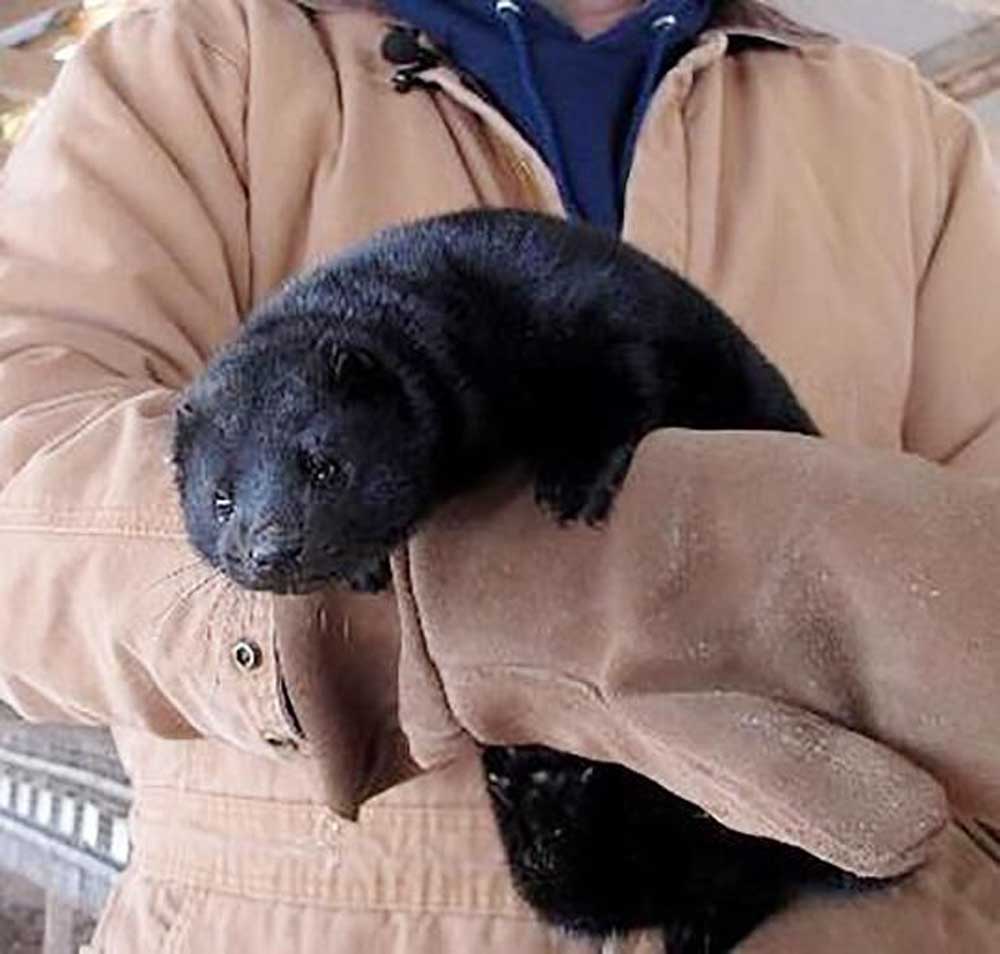House bill would ban mink farming
Published 1:11 pm Friday, February 11, 2022

- The U.S. House of Representatives has passed a provision in the America COMPETES Act that would ban mink farming nationwide.
U.S. House lawmakers have passed a ban on mink farming in the U.S. as part of an omnibus bill intended to strengthen American competition with China.
Fur Commission USA, the trade association representing mink farmers, called it “a sneak attack on rural America.”
The legislation was added as an amendment to the America COMPETES Act of 2022, which passed the House in early February mostly along party lines. The package is likely to face Republican opposition in the narrowly divided Senate.
Supporters cheered the measure as necessary to protect mink from inhumane treatment and halt COVID-19 spillover.
According to the U.S. Department of Agriculture, mink farmers produced 1.41 million pelts in 2020. Wisconsin is the largest pelt-producing state, followed by Utah, Idaho and Oregon.
The amendment adopted in the House version of the America COMPETES Act would ban mink farming in the U.S. by the end of 2022. It was sponsored by U.S. Reps. Rosa DeLauro, D-Conn.; Nancy Mace, R-S.C.; Peter DeFazio, D-Ore.; Jim Cooper, D-Tenn., Andy Levin, D-Mich.; and Joe Neguse, D-Colo.
“Factory farming of mink threatens public health, especially as we continue fighting against the COVID-19 pandemic,” DeLauro said in a statement. “The evidence is clear: mink operations can incubate and spread new COVID-19 variants and pose a unique threat of extending the pandemic.”
The USDA Animal and Plant Health Inspection Service reports 17 mink farms have had confirmed cases of COVID-19, including one in Oregon.
Mink-to-human spread of the virus has been reported in major pelt-producing countries such as the Netherlands, Denmark and Poland, and data from the Centers for Disease Control and Prevention suggest it might have occurred in the U.S.
Despite this, the CDC says, “Currently, there is no evidence that mink are playing a significant role in the spread of COVID-19 to people.”
Wayne Pacelle, the president of the nonprofit Animal Wellness Action, said mink farms are a danger to public health because they pack so many animals together in confinement, allowing them to easily spread the virus and possibly incubate new variants that can be shared with humans.
“This is just an unnecessary risk,” said Pacelle, whose group is pushing the ban. He is the former head of the Humane Society of the United States.
Several countries in Europe have already passed or are considering bans on mink farming.
Denmark, the world’s largest producer of pelts, culled 17 million mink in response to outbreaks at more than 200 farms, and extended a moratorium on mink breeding through 2023. The Netherlands — where the first outbreak was detected — will also prohibit mink farming beginning in 2024.
USDA figures show the production of mink pelts has declined over the last six years. After peaking at 3.76 million pelts in 2014, the total fell 62.5% to 1.41 million pelts in 2020.
The average price per pelt has also fallen from $57.70 to $33.70. The price was even lower in 2019, at $21.30.
Pacelle said there is virtually no domestic market for mink. About 80% of all pelts are exported to China.
“We thought it was relevant to the China competition bill,” Pacelle said. “Essentially, we have a very small, unprofitable business operating in the U.S. that sells almost all of the pelts produced to China, while China is outsourcing all the environmental risks to the U.S.”
Challis Hobbs, the Fur Commission USA executive director, said members are “shocked by the open hostility” of the proposed ban, and accused activists of exploiting the pandemic to further their goals of ending animal use.
“Proponents’ use of unfounded scare tactics to justify this extreme taking of private property and livelihoods must be stopped immediately,” Hobbs said.
More than 85% of pelts used in the world’s fur trade comes from small, family-run farms, the commission says. Farms are licensed and regulated by state departments of agriculture, and the commission has developed standard guidelines for everything from feeding and cage size to transportation and harvest.
A COVID-19 vaccine for mink has also been released by Zoetis, a pharmaceutical company that specializes in medicine for pets and livestock.



